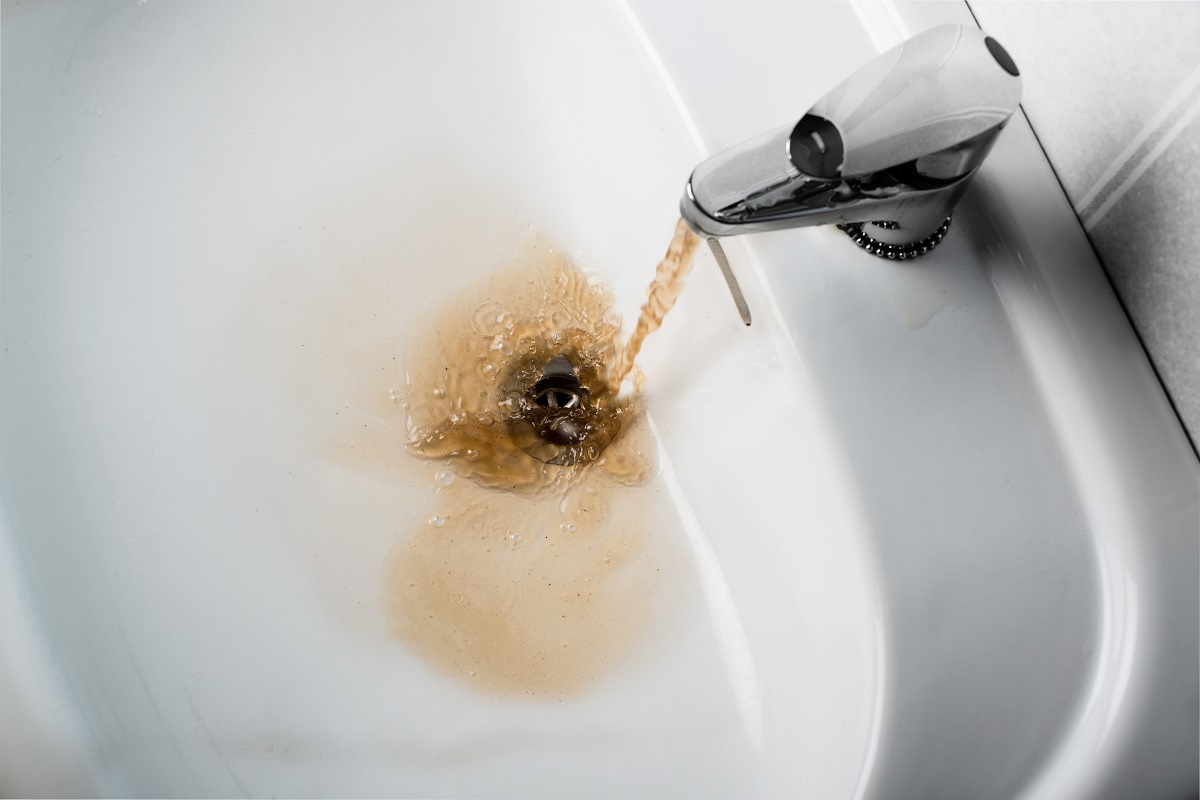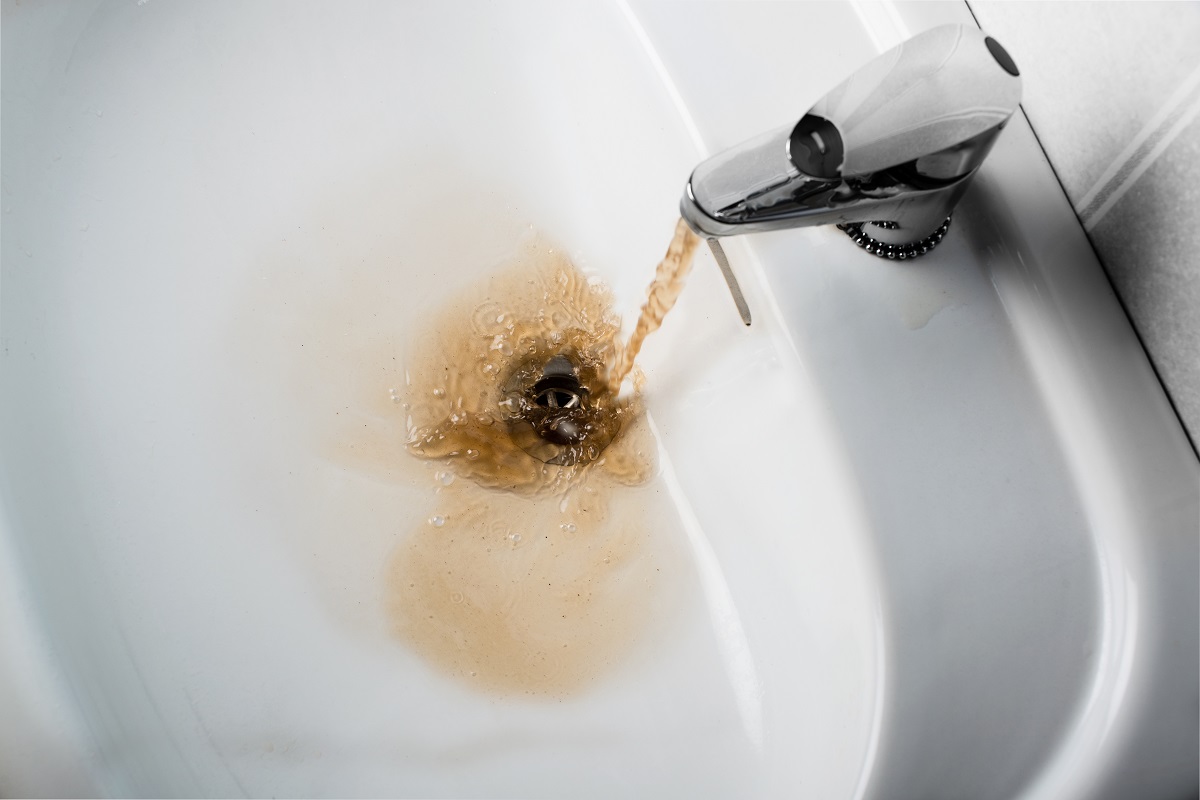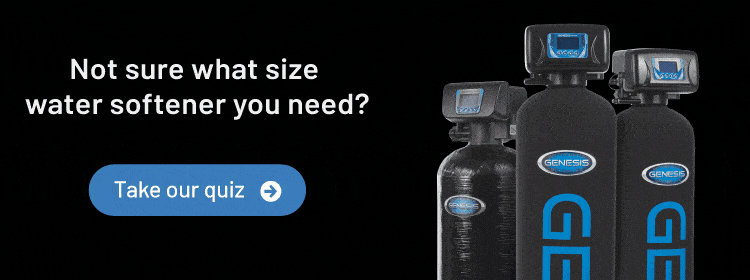Best Iron Filter For Well Water
Posted by Discount Water Softeners on Sep 1st 2022
Keeping a clean and healthy home isn’t just about sparkling countertops or making sure your kids eat their vegetables. The water that enters your home and through every faucet is a large part of the equation when it comes to the well-being of your family. Proper filtration of water prevents harmful chemicals and bacteria from invading your space.

Well, Well, Well
More than 43 million people in the U.S. rely on wells for their home’s water. Well water is a private water source taken directly from the earth. To create a private well, a hole is drilled into the ground down to the aquifer, a permeable layer of rock that contains water. A pump system is used to carry that water up and into your home.
One of the most appealing aspects of using a private well is not having to pay a water bill. You’re not connected to a local water supply, which means there’s no monthly costs, no service disruption in cases of natural disasters or emergencies, and you know exactly where your water is coming from.
All private wells use groundwater and can save homeowners money. But unlike tap water, which comes from a municipal water supply, well water is not treated with chemicals like chlorine to filter out bacteria and microorganisms before it enters your home. This makes it even more important that private well water is tested frequently to ensure safety for drinking.
How Clean is Well Water?
When rain falls, much of it is absorbed into the ground. The water that isn’t used by trees and plants will travel downward through the pores and spaces in rock and soil until it becomes trapped below the ground, and in between the dense rock barrier deep below. This groundwater is what is used in private wells and is naturally filtered by the layers of rock and soil that it passes through—though it’s not guaranteed to be bacteria-free.
Private wells can be contaminated by both naturally occurring sources, and by human activities such as sewage, fertilizers, and organic chemicals. Dangerous toxins enter private wells through waste disposal, spills, and surface water run-off. Proper sealing, sufficient filtration, and a slow travel time between the aquifer and the ground surface can go a long way toward preventing any bacterial contamination in a private well.
The most common problem in water treatment, next to hard water, (high levels of calcium and magnesium minerals) is excess iron in water. While some iron is good for you—in fact, millions of people aren’t getting enough of it—iron-deficiencies are best corrected by food intake or supplements, and not by the water you drink. Iron is naturally occurring in nature and can be found in most water sources. But it is especially prevalent in homes with well water. Iron seeps into aquifers that serve as sources of groundwater for wells, or through the corrosion of pipes. Iron is also easily picked up and carried by rainwater or melting snow and can be dissolved into any water supply. Well water systems are subject to deterioration. Over time, a well with excellent water quality initially, may eventually become loaded with iron and bacteria entering through fractures in well walls or surrounding rock.
Iron In Well Water
Iron, or iron oxide in water, can change the color and taste of your drinking water. This can be remedied by installing an iron filtration system. Many homes with private wells have an iron filter for well water, as well as a water softener system, which uses salt to help filter minerals for softer, purer, tap water.
Iron in water can be unpleasant to drink. It leaves rust stains in sinks, bathtubs, and toilets, as well as in washing machines and on clothing. Yellow or red-colored water is often a good indication that iron is present. However, testing your water to determine the exact levels can be useful in deciding the best type of water filter to remove iron.
How to Remove Iron From Well Water
An iron filter should be used when water contains a high concentration of inorganic iron, whether ferrous or ferric, or when organic matter is also present. Most iron filters are similar in appearance and size of a standard water softener, but contain media beds that will oxidize the soluble, ferrous state of iron to an insoluble, ferric state so that the solid particles can be filtered from the water.
In addition to testing for iron, it can also be useful to test for water hardness, pH, and alkalinity to determine if your home would benefit from a whole house water softener as well as an iron removal filter. Water softeners are only effective for iron removal when iron concentrations are low and all or most is in a soluble state. For higher levels of inorganic iron, an iron filter is a necessary supplement to your home’s water softener. Well water that is properly tested and maintained is safe to drink and cook with, though it may taste or smell slightly different than what you are used to from a municipal water supply. The Environmental Protection Agency offers guidance for private well owners, and suggests that well water should be tested each year for bacteria and nitrates.
As a private well owner, to keep your well water clean and pure, and your well operating at peak performance, an annual well water checkup is an important safeguarding practice. Well owners are solely responsible for the quality of their drinking water. Properly constructed private water supply systems require little routine maintenance, but following a few simple guidelines as well as regular testing will help protect your system and your investment.


